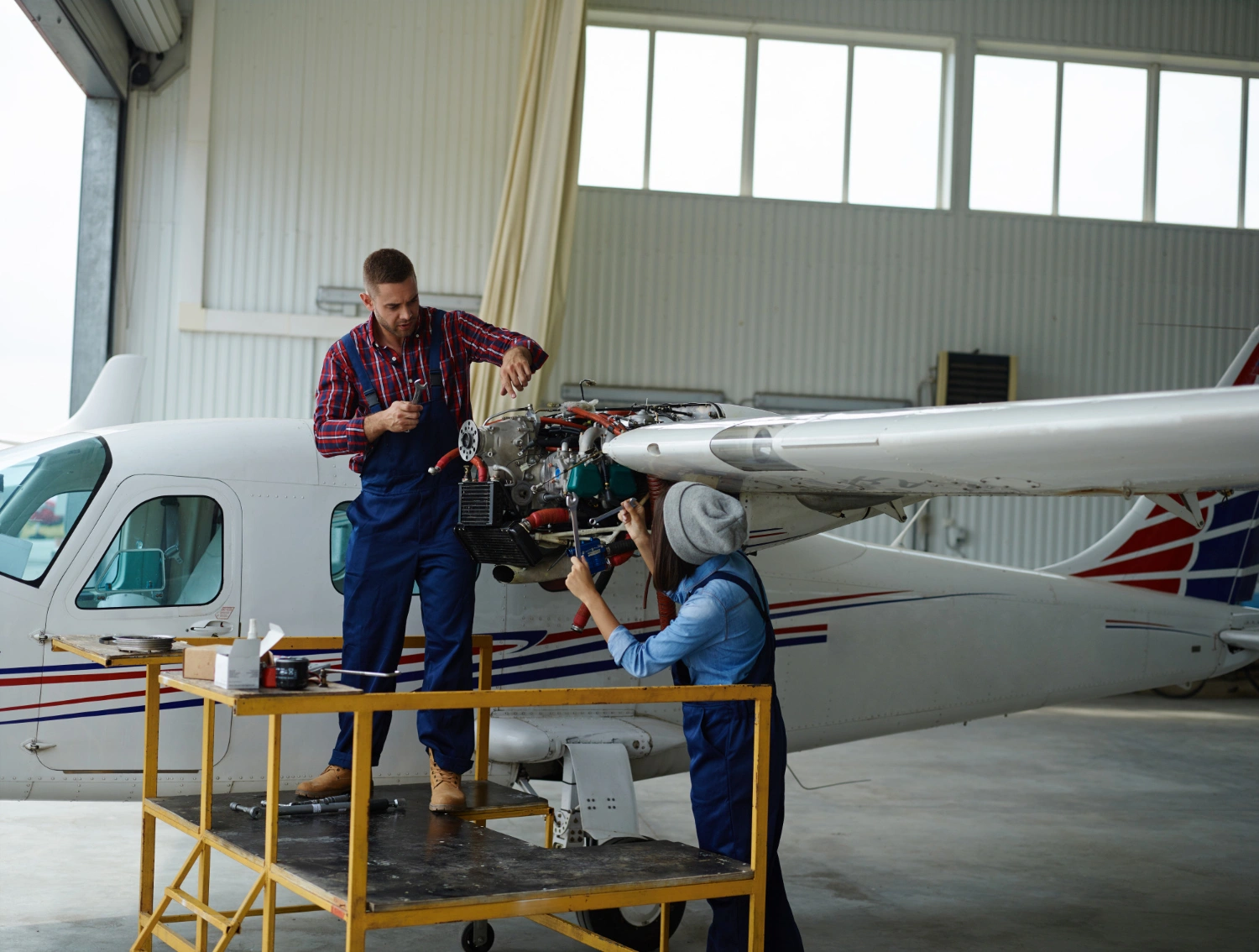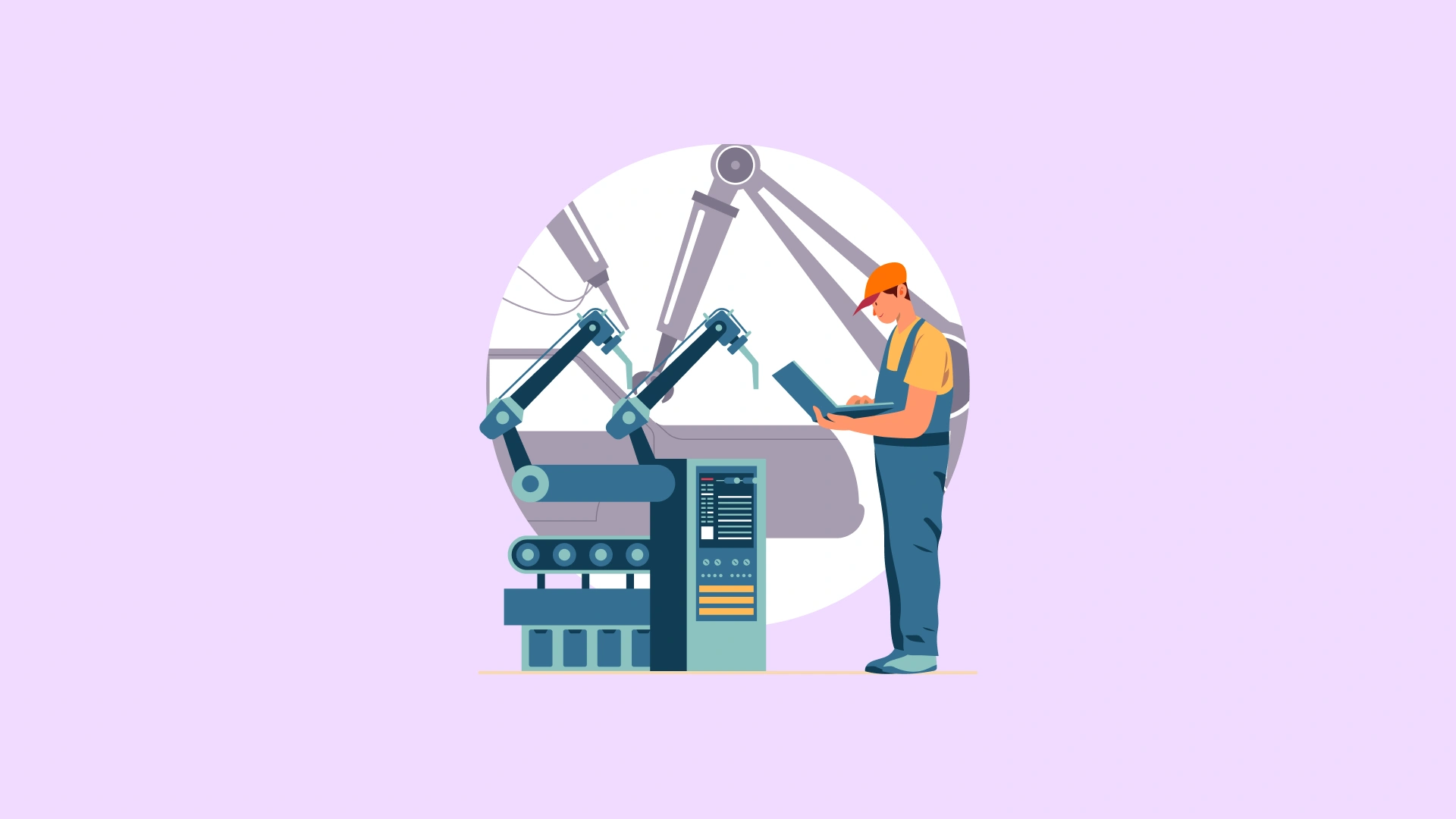1. Maintenance Technician
Also referred to as industrial maintenance mechanics, maintenance technicians are skilled professionals who keep equipment, machinery, and facilities in good working order.
They work across a range of industrial, commercial, and residential settings, from manufacturing and facilities management to fleet maintenance.
Apart from routine maintenance, these professionals perform preventive maintenance, use diagnostic tools to troubleshoot issues, and make necessary repairs to prevent downtime and ensure efficient operations.
The role requires a thorough understanding of electrical, mechanical, hydraulic, and other systems, as well as an understanding of safety procedures and standards.
Work-Life Balance Overview
Maintenance technicians enjoy predictable schedules, typically working standard 40-hour weeks in facilities like factories or office buildings.
Many positions are shift-based with daytime hours that leave evenings and weekends free for personal pursuits.
Unlike some trade jobs with on-call availability requirements, maintenance technicians in stable industries like utilities or manufacturing usually have fixed schedules that eliminate the likelihood of emergency work or unexpected overtime.
The hands-on nature of this role also means technicians don’t have to bring projects or administrative tasks home, enabling a clear separation between personal and professional life.
Finally, the high demand for maintenance technician roles (15% estimated annual growth between 2023 and 2033) ensures job security without undue pressure because employers value efficiency rather than overwork.
An average annual salary of over $55,000, with top earners making up to. $76,540, supports a comfortable lifestyle.
2. Aircraft and Avionics Equipment Technician
Aircraft technicians are responsible for the mechanical and structural integrity of airplanes and helicopters.
Avionics equipment technicians calibrate, maintain, and repair an aircraft's electronic systems, which include instruments, sensors, radar, and communication and navigation systems.
Both professionals work to strict Federal Aviation Authority (FAA) standards to keep aircraft flying safely and reliably.

Work-Life Balance Overview
This trade offers structured schedules as maintenance is planned around flight operations.
Technicians usually operate in hangars and repair stations on fixed, eight-hour shifts.
The job’s high responsibility means work is almost always completed during regular working hours, usually with no take-home tasks.
An average annual salary of $66,721 and strong job stability means a rewarding role without erratic hours.
3. Biomedical Equipment Technician
These professionals install, calibrate, maintain, and repair critical diagnostic and medical equipment like MRI and CAT scan machines, ventilators, and patient monitors.
They conduct preventive maintenance on medical equipment and ensure compliance with relevant healthcare standards across hospitals, clinics, outpatient facilities, and research labs.
Work-Life Balance Overview
Biomedical equipment technicians work according to structured hospital or clinical schedules that rarely deviate from standard 40-hour weeks.
While some roles may involve occasional emergency repairs, most positions are limited to regular business hours.
The job’s focus on precision and problem-solving is mentally engaging and doesn't spill over into personal time.
A competitive average annual salary of $72,902 and high job security (projected job growth rate of 18% between 2023 and 2033) support financial confidence and a balanced life.























